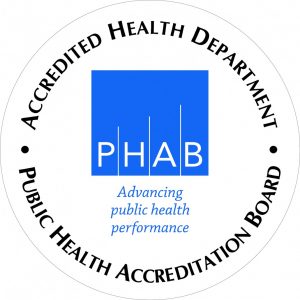Measles: What You Need to Know
Measles is a respiratory disease caused by a virus. Measles spreads through the air by breathing, coughing or sneezing. It is so contagious that any child who is exposed to it and is not immune will probably get the disease.
Measles causes fever, runny nose, conjunctivitis, cough, and a rash all over the body. Complications include ear infection, pneumonia, encephalitis and death. Measles can also make a pregnant woman have a miscarriage or give birth prematurely.
Onset of the illness can occur from 12-17 days after exposure. An infected person can spread the disease four days before onset of rash until four days after the onset of rash.
What You Can Do
Measles can be prevented with measles-containing vaccine, which is primarily administered as the combination measles-mumps-rubella (MMR) vaccine. The combination measles-mumps-rubella-varicella (MMRV) vaccine can be used for children aged 12 months through 12 years for protection against measles, mumps, rubella and varicella. One dose of MMR vaccine is approximately 93% effective at preventing measles. Two doses are approximately 97% effective.
Children should receive the first dose of measles-containing vaccine at 12-15 months and the second dose at 4-6 years. Adults born during or after 1957 likely have received one dose and may receive a second MMR for additional protection. Adults born before 1957 most likely had measles and are generally considered immune. Adults at higher risk, such as college students, healthcare personnel, international travelers and persons with potential measles outbreak exposure should have two doses of measles vaccine.
Other ways to prevent the spread of disease are good hand washing, cover your coughs and sneezes, and stay home when sick.
Learn More About Measles
For questions contact Marion Public Health’s Elaine Lawson at 740-692-9124 or Gwen Janeczek at 740-692-9123.
For up-to-date information on the 2014 Measles outbreak in Ohio click here.
For more information visit the CDC Measles home page.
Mumps: What You Need to Know
Mumps is a contagious disease caused by the mumps virus. Mumps is spread by droplets of saliva or mucus from the mouth, nose or throat when the infected person coughs, sneezes or talks. Symptoms include fever, swollen glands near the face, body aches, fatigue and loss of appetite.
Complications from mumps can include meningitis, hearing loss and reproductive problems in men and women which can lead to infertility. Onset of the illness can occur from 14-25 days after exposure. An infected person can spread the disease 2 days before symptoms and up to five days after symptoms appear.
What You Can Do
The best way to prevent the spread of mumps disease is by being up-to-date with the recommended doses of mumps-containing vaccine. Mumps vaccine is included in the combination measles-mumps-rubella (MMR) vaccine and measles-mumps-rubella-varicella (MMRV) vaccines. Two doses of mumps vaccine are 88% effective at preventing disease and one dose is 78% effective.
Children should receive the first dose of mumps-containing vaccine at 12-15 months and the second dose at 4-6 years. Adults born during or after 1957 likely have received one dose and may receive a second MMR for additional protection. Adults born before 1957 most likely had mumps and are generally considered immune. Adults at higher risk, such as college students, healthcare personnel, international travelers and persons with potential mumps outbreak exposure should have two doses of mumps vaccine.
Other ways to prevent the spread of disease is good hand washing, cover your coughs and sneezes, and stay home when sick.
Learn More About Mumps
For questions contact Marion Public Health’s Elaine Lawson at 740-692-9124 or Gwen Janeczek at 740-692-9123.
For up-to-date information on the community Mumps outbreak in Central Ohio click here.
For more information visit the CDC Mumps home page.

